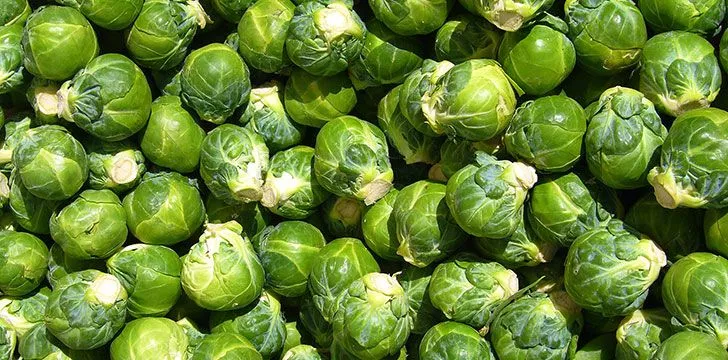Every year since a very young age, many of us are forced to sit down and eat the Brussels sprout – a vegetable almost every child and even a lot of adults detest.
But why do we hate them so much?
Is it simply the way they are cooked, or something scientific that causes our sheer hatred of the sprout?
Here we’re going to look at 10 facts about this green wonder from energy to genetics, and much more!
The Brussels Sprout Gene
Would you believe there is actually a genetic reason why you and your family may love sprouts whilst your partner and in-laws hate the little green gaseous bombs?
It’s all down to a gene: TAS2R38 which controls whether we taste the chemical PTC.
This is the chemical responsible for the taste of bitterness.
Usually this hideous chemical isn’t found in the human diet thankfully, but it does exist in sprouts and other such foods.
After this gene was founded in the 1930’s, the founder conducted an experiment to see if people possessed the gene.
He could (with a great amount of success) identify those who had it or not simply on whether they were related, proving this is genetically affected.
Although the gene was found in the 1930’s, the specific gene wasn’t actually identified until 2003.
Brussels Sprout World Records
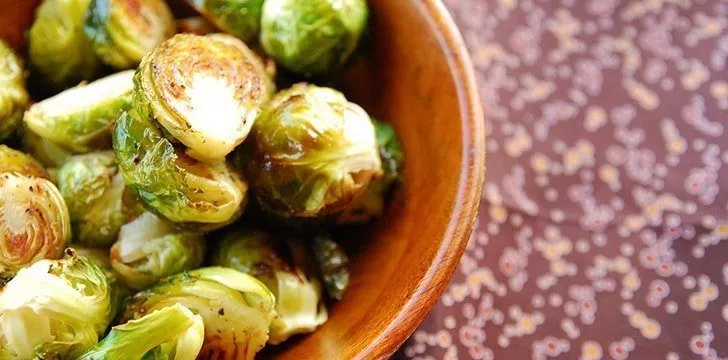
As with anything in the world these days, there are a range of world records dedicated to the Brussels sprout.
Did you know that in 2008, a Swedish man named Linus Urbanec achieved the stomach-churning record of consuming 31 sprouts in 60 seconds!
With each having to be skewered and swallowed individually, he achieved the title of “the most sprouts consumed in 1 minute.”
In 2013, in the U.K. town of Redditch, the sprout played a huge part in making up the “world’s largest Christmas dinner.”
Weighing in at over 21lb (9.5kg), this Christmas lunch was constructed at the Duck Inn and used 25 sprouts – over 6 recommended servings of sprouts!
Brussels Sprout Production
When it comes to the U.S., the annual production stands at a staggering 32,000 tons with the largest producer of the sprout being California, followed by Washington and New York.
If you look over at Europe, they blow the U.S. production out of the water, with a whopping 82,000 tons being produced in the European-market leading nation of the Netherlands alone.
In 2017, due to abnormal temperatures, the sprouts plants in the U.K. soared upward and outward producing so-called “monster sprouts”.
These monster sprouts were over twice as large, weighing in at an average of 35g each compared to the normal 15g!
Children across the U.K. rejoiced at the thought of bigger sprouts on their lunches, of course.
Bad Smell and Taste
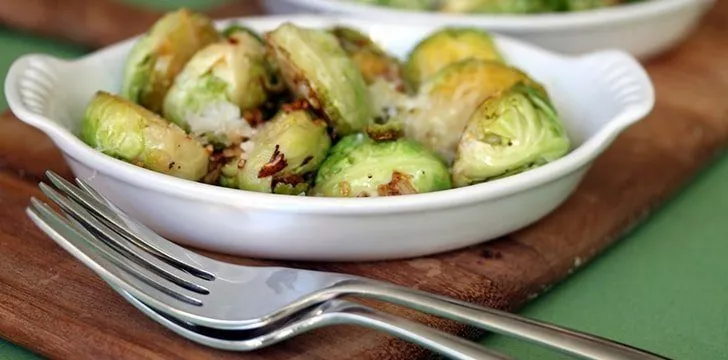
As all good cooks know, boiling the sprout to within an inch of its life leaves it gray, sodden and generally unpleasant smell, but where does the smell come from?
Simply put: it’s sulfur. But more specifically, the smell is actually caused by the compound glucosinolate sinigrin which contains sulfur.
Sprouts on a school dinner were by far the worst for their awful smell.
And no one puts this better than the columnist Dave Barry who said “We kids feared many things in those days – werewolves, dentists, North Koreans, Sunday school – but they all paled in comparison with Brussels sprouts.”
Longest & Heaviest Brussels Sprouts
Every child’s worst nightmare was always the thought of a giant sprout on their plate, especially if the family rule was that you weren’t able to leave the table until the plate was clean.
But what was reality’s largest, fattest and heaviest sprout?
In 1992, the heaviest sprout was crowned. This behemoth weighed in at a jaw-dropping 18lb 3oz (8.3kg)!
But what about the longest though?
In 2000, a U.S. couple managed to grow a sprout plant that measured in at an astounding 9’ 3” – that’s 2.8 meters!
Health Contents of Brussels Sprouts
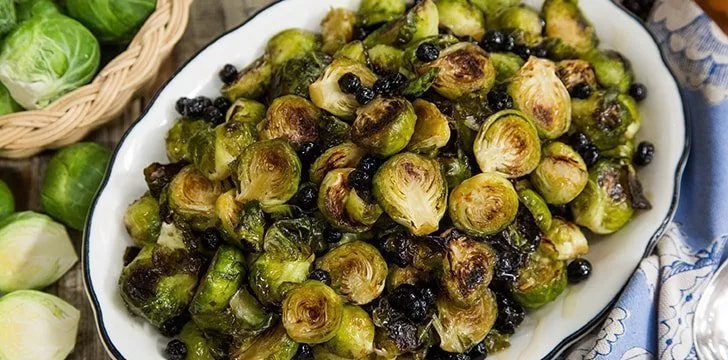
Consuming 1 cup of sprouts will actually give a whopping 195% of your daily recommendation of vitamin K and 125% of your vitamin C.
With a cup of cooked Brussels, it provides you with an impressive 11g of carbs and 4g of protein.
If you choose the most-common method of cooking sprouts, which is steaming the sprout, this can actually have cholesterol-lowering properties.
The steam causes the fiber parts of sprouts to stick to bile acids which means they can easily excrete these acids.
This can actually lower levels of cholesterol.
According to a study, around 1 and 1/4 cups of sprouts can actually help protect DNA inside our white blood cells.
It does this by blocking certain enzymes.
Sprout Energy
Brussels Sprouts have a very high energy content, as we all know after eating a serving we’re all very energetic.
In 1 cup, or around 90g of sprouts, there are a staggering 158 kJ of energy, which is around 44 watts per hour!
In 2015, a collection of school children and scientists in London, U.K., managed to power a Christmas tree with the use of 1,000 sprouts which is the equivalent of 44 kilowatts per hour.
The tree was lit up in Southbank.
How To Cook Brussels Sprouts
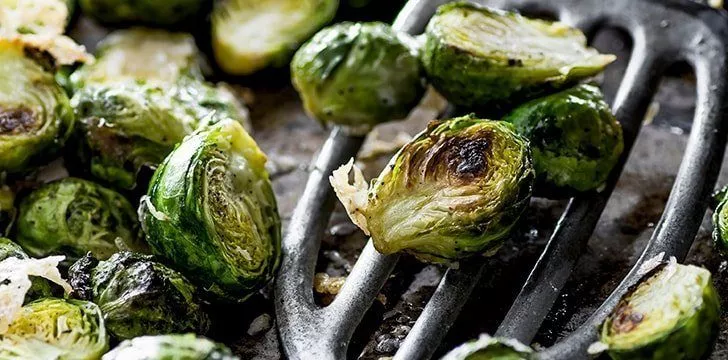
The Brussels sprout can be prepared in an endless number of ways.
Some people go for the apparently cholesterol-fighting option of steaming, which is done by scoring the bottom and boiling for between 5 -10 minutes.
Meanwhile, others choose the more fashionable sautéed sprouts with bacon all the way through.
Or, there are the more unusual methods like cherry-glazed, or even in a sprout and grape bake.
All in all, some believe there is at least a staggering 9,000 different ways of utilizing the sprout for cooking.
Brussels Sprouts Consumption
Even though the British produce nowhere near the sheer amount of sprouts their Dutch cousins produce annually, they actually consume the most overall when compared to the whole of Europe.
In Britain however, the vegetable is definitely a festive choice.
A rather impressive two thirds of the overall number of sprouts eaten in the U.K. consumed just over the Christmas period alone!
The History of Sprouts
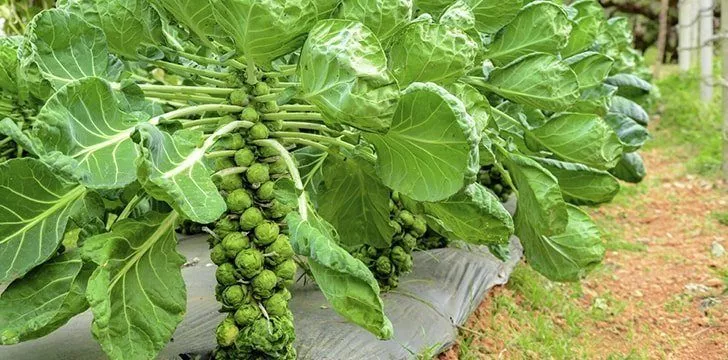
What is the history of the modern sprout?
As with most modern vegetables and indeed foods in general around today, there was an ancestor.
For the sprout the ancestor is believed to be an Ancient Roman crop.
Like other cabbage species, the sprout is a Mediterranean native, but was cultivated in the 1200’s near its namesake city of Brussels after being brought to Europe in the 5th Century.
So there we have it, the humble sprout has quite the impressive list of secret skills.
From Christmas tree-powering energy to substantial nutritional value, there really is quite the skill sheet for most people’s least favorite vegetable!
